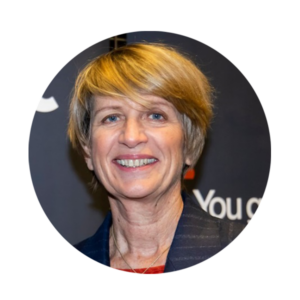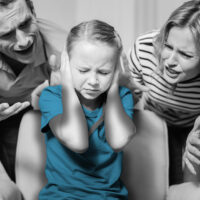Childhood verbal abuse is characterised by adults shouting, yelling, denigrating, and verbally threatening the child. These types of adult actions can be as damaging to a child’s development as other currently recognized and forensically established subtypes of maltreatment such as childhood physical and sexual abuse. This is a series made up of three sessions.
These three webinar will have talks from Professor Shanta R. Dube, Director of the MPH Program at the Levine College of Health Sciences, Wingate University, and Dr. Fiona Pienaar, child and adolescent mental health specialist, Senior Clinical Advisor at Mental Health Innovations (MHI) / Shout (UK), and was previously Director of Clinical Services at charity Place2Be.
Professor Shanta R. Dube will lead the first and third sessions, and will be joined by Dr. Fiona Pienaar for the second session.
Booking
The price below is for all three sessions. Sign up at this link or on the Book Now button at the top of the screen, and complete the form that follows. You’ll then receive an email confirmation and a link to the webinar, plus we’ll send you a calendar reminder nearer the time. Delegates will have exclusive access to recordings for 90 days after the event, together with slides. Plus you will get a personalised CPD certificate via email.
- ACAMH Members MUST login to book onto the webinar in order to access this webinar and get a CPD certificate
- Non-members this is a great time to join ACAMH, take a look at what we have to offer, and make the saving on these sessions
£40 ACAMH Members
£60 Non Members Join now and save
£5 Undergraduate / Postgraduate Members
FREE for ACAMH Low and Middle Income Countries Members
Don’t forget as a charity any surplus made is reinvested back as we work to our vision of ‘Sharing best evidence, improving practice’, and our mission to ‘Improve the mental health and wellbeing of young people aged 0-25’.
About the talks
Session 1: Thursday 6 March, 17.00 – 18.30 UK time
Definition and measures of CVA – Prof. Shanta Dube
Currently, there are four recognized child maltreatment subtypes: physical abuse, sexual abuse, emotional abuse, and neglect. Of these four subtypes, an increase in the prevalence of childhood emotional abuse has occurred. However, childhood emotional abuse is often defined as the adult-to-child perpetration of verbal abuse, which is characterized by verbal threats, shouting, yelling, and denigrating the child. Yet, childhood verbal abuse is currently not recognized as a subtype of child maltreatment and has therefore not received adequate attention. Childhood verbal abuse is not on the radar of detection, making it especially difficult to assess, detect, and prevent. This talk will provide key findings from a recent systematic review of over 150 research studies on childhood verbal abuse. The talk will highlight the observed epidemiological shifts in the prevalence of childhood abuse subtypes and show that currently, childhood verbal abuse has the greatest burden globally. The various terms and definitions used in the studies reviewed will be presented and discussed. Most importantly, the long-term negative impact of childhood verbal abuse across the lifespan will be presented to highlight the need for greater awareness of this form of maltreatment. Implications and future directions will be discussed.
Learning objectives
By the end of the session delegates will be able to;
- Describe the burden of childhood verbal abuse in the population.
- Explain the various terms and definitions used for assessing childhood verbal abuse in research and practice.
- Discuss the long-term health impact of childhood verbal abuse as the rationale for being a specific subtype of child maltreatment.
Session 2: Thursday 13 March, 17.00 – 18.30 UK time
Impact of CVA across the lifespan – Prof. Shanta Dube and Dr. Fiona Pienaar
Today, 2 in 5 (41%) children experience verbal abuse from adults in the form of hurtful and upsetting words to blame, insult and criticise. It can cause lifelong damage and affect an individual’s ability to function at home, school, the workplace, and in social situations. Often hidden behind closed doors like other forms of abuse, it is time it was brought out into the open so that its impact on children can be understood and given the attention it needs. This is why Jessica Bondy set up Words Matter, an ambitious new charity to improve children’s mental and physical health and development by ending verbal abuse of children by adults. It is the first organisation in the world to focus solely on this issue and she will be talking about its work.
Learning objectives
- To increase understanding about childhood verbal abuse.
- To raise awareness of the impact of childhood verbal abuse by adults.
- To increase support and interest in bringing an end to verbal abuse of children by adults.
Session 3: Thursday 20 March, 17.00 – 18.30 UK time
Prevention and interventions – Dr. Fiona Pienaar
This presentation acknowledges the sensitive and complex nature of verbal abuse and how it can often be overlooked and underestimated. It amplifies the voices of children (and their parents and carers) to shed light on the impact of verbal abuse within family, educational and social environments. Children also provide insight into how positive communications with adults contribute to their mental health and wellbeing. Information about available resources and support systems will be provided. We hope that the three presentations will leave you informed, contemplative, and inspired to take action to prevent verbal abuse.
Learning objectives
- To gain insight into the nuanced and prevalent nature of childhood verbal abuse, acknowledging its impact on individuals and communities.
- To increase understanding of the impact of verbal abuse from the perspective of children.
- Discuss the role of caregivers, educators, and communities in preventing and addressing childhood verbal abuse.
- To develop knowledge on accessing resources and support networks.
About the speakers

Prof. Shanta Dube is Professor and Director of the Master of Public Health Program, Department of Public Health in the Levine College of Health Sciences, Wingate University. She is a social and behavioural epidemiologist with 25 years of experience in public health practice, research, and teaching. She served as one of the early investigators on the CDC-Kaiser Adverse Childhood Experiences (ACE) Study and has received national and international recognition for her scientific contribution related to toxic stress and resiliency. She has written over 150 publications and serves as Associate Editor for Child Abuse & Neglect: The International Journal.

Dr. Fiona Pienaar is the Senior Clinical Advisor for both Mental Health Innovations (MHI) / Shout (UK), and Whakarongorau Aotearoa New Zealand Telehealth Services (NZ). Previously she was the founding Chief Clinical Officer at MHI and prior to that, the Director of Clinical Services of UK charity, Place2Be. Fiona has a background in primary and intermediate school teaching, special needs education, counselling in schools, postgraduate counsellor/psychotherapist education in both UK and NZ, resource development, and mental health research. Fiona has a PhD (Behavioural Science) from The University of Auckland, NZ, (research that focused on children’s experiences of stress and coping), a MEd (Counselling), Prof Cert in Coaching (Henley Business School), plus various teaching, counselling and special needs qualifications.
Booking
The price below is for all three sessions. Sign up at this link or on the Book Now button at the top of the screen, and complete the form that follows. You’ll then receive an email confirmation and a link to the webinar, plus we’ll send you a calendar reminder nearer the time. Delegates will have exclusive access to recordings for 90 days after the event, together with slides. Plus you will get a personalised CPD certificate via email.
- ACAMH Members MUST login to book onto the webinar in order to access this webinar and get a CPD certificate
- Non-members this is a great time to join ACAMH, take a look at what we have to offer, and make the saving on these sessions
£40 ACAMH Members
£60 Non Members Join now and save
£5 Undergraduate / Postgraduate Members
FREE for ACAMH Low and Middle Income Countries Members
Don’t forget as a charity any surplus made is reinvested back as we work to our vision of ‘Sharing best evidence, improving practice’, and our mission to ‘Improve the mental health and wellbeing of young people aged 0-25’.

